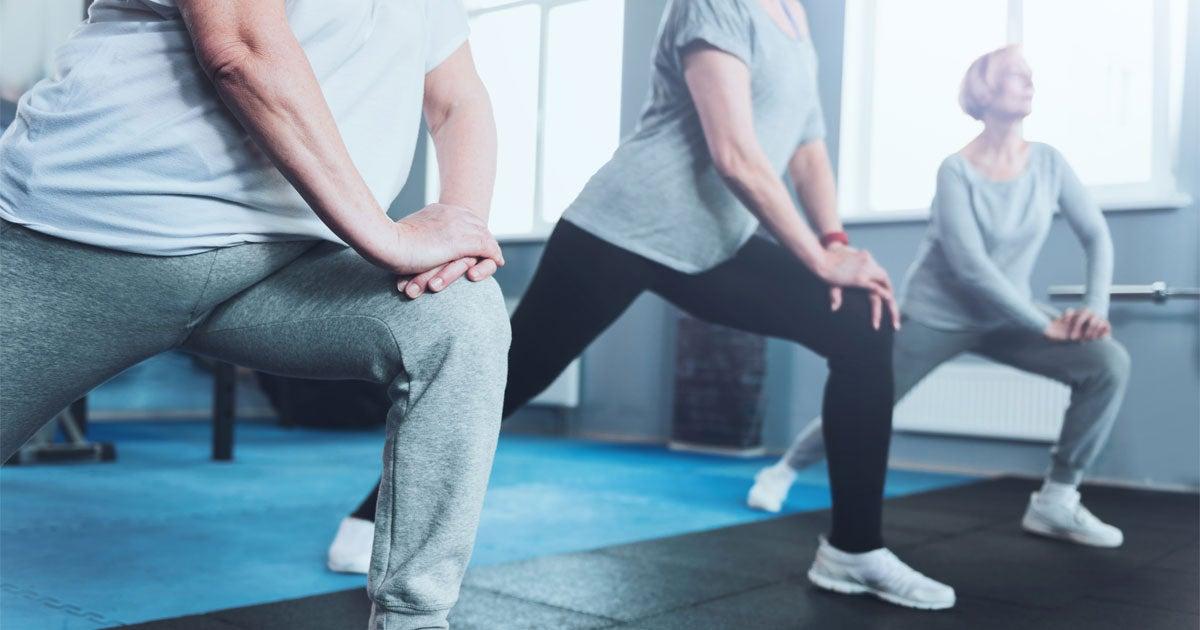
Related Topics
Developed and tested by researchers at the University of Otago, New Zealand, the Otago Exercise Program is one of the most effective fall prevention programs for older adults.
How does the Otago Exercise Program help prevent falls?
The first Otago Exercise Program study published in 1995 demonstrated that people who completed the program fell 35% less than people of the same age who didn't complete the program. During the last 30 years, over 100 studies with different groups of older adults in different settings have consistently shown that older adults who participate in this simple program experience fewer falls and fall-related injuries than their peers.
The Otago Exercise Program is so effective because it is designed to provide the best type and amount of exercise for older adults who may be struggling with their strength and balance. The program consists of up to a total of 17 exercises tailored for each participant and a walking component.
Participants work up to doing 30-minute sessions, and alternate walking days with exercise days. The program recommends using adjustable ankle weights for three of the exercises for the best results. As you master the exercises, you are encouraged to progress to a greater challenge by either adding more weight, or using less upper body support for the balance exercises.
Many of the exercises may be familiar, such as standing up and down from a chair or standing on one leg. Some may be new to you, such as heel toe walking forwards and backwards or walking on your heels and walking on your toes. The great thing about the Otago Exercise Program is that you do not have to do all 17 exercises at first. The program is designed for you to progress through the exercises. Start with what you can do, and then gradually add a greater challenge as you are able to do more.
Do I need to work with a physical therapist or take a class to access the Otago Exercise Program?
The Otago Exercise Program was originally designed to be prescribed by a physical therapist. If you have experienced a fall in the last 12 months or if you score lower than 4 on the Falls Free Checkup,you may want to connect with a physical therapist for a comprehensive fall risk assessment to identify if you are appropriate for the program. You may need a referral from your doctor to see the physical therapist. This would require a phone call to your doctor’s office.
The physical therapist may work with you to improve your strength and balance so you can safely complete the program on your own. They may identify other reasons why you are at high risk for a fall, for example, if you take certain types of medications or have problems with dizziness, and may recommend that you address those issues before starting the program. If you are ready, they may start you on the Otago Exercise Program or recommend a local class.
What do I say to a physical therapist if I want to take this program?
When you call your physical therapist for an appointment, say that you are concerned about your balance and interested in a fall prevention program called the Otago Exercise Program. Ask for a comprehensive fall risk assessment and, based on the results, recommendations for exercises from the Otago Exercise Program that are best for you.
The physical therapist will ask about your falls history and current medications and evaluate your strength and balance. After the evaluation, they will either make recommendations tto prepare you to do the program, or they will prescribe specific exercises for you to start and progress through the Otago Exercise Program.
Can I take Otago Exercise Program classes in the community?
Many organizations in the community now offer Otago Exercise Program classes. Often, a physical therapist will partner with an organization to screen people for fall risk factors before beginning a program. If this is not an option, then you should complete the Falls Free CheckUp. If you score lower than 4, you should see a physical therapist or other healthcare provider for a comprehensive assessment before starting a class.
You can find information about the Otago Exercise Program here, by talking to a physical therapist, or asking if your senior center offers this program. If you prefer to exercise on your own, there are online videos and mobile apps that can lead you through the exercises. Always talk with your doctor before starting any new exercise routine.
Challenging yourself to stay falls free
Remember, the key is that the exercises are consistently challenging for YOU at whatever level you are at. You may find the exercises have become too easy, at which point you may want to consider transitioning to tai chi or another type of exercise which is done on your feet for at least 30 minutes and challenges your balance.
Participating in a program like the Otago Exercise Program can help you improve your strength, balance, and walking. These factors can help you avoid a fall and injury, and, most importantly, remain independent and be able to do the things that are most important to you.




